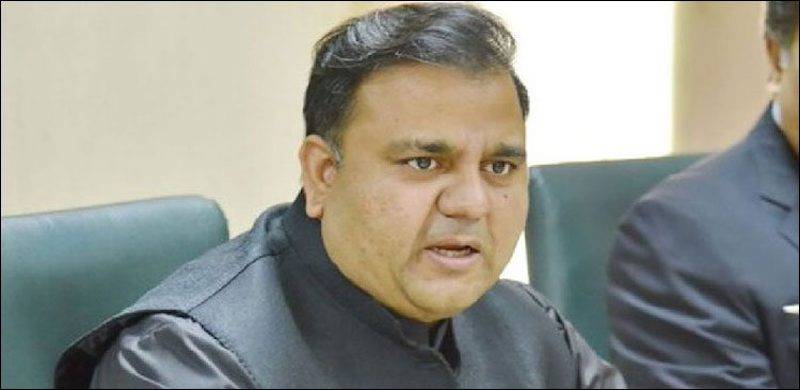
Federal Minister for Information Fawad Chaudhry warned on Monday that the region’s growing 'retrogressive' and extremist movements posed a danger to Pakistan, referring to recent infringements on women’s rights by the Taliban in Afghanistan.
Speaking at a ceremony in Islamabad, Chaudhry remarked, "You see that two extremist regimes have cropped up on right and left of Pakistan. On one side there is Afghanistan where the Taliban have arrived.” In India, Chaudhry noted, Hindu extremism has led to targeted attacks against the Muslim community in the country.
The minister asserted that such instances of religious extremism go against Quaid-e-Azam Mohammad Ali Jinnah’s original vision for Pakistan.
"This confusion should be completely dispelled that the Quaid-e-Azam wanted a religious state. He never saw Pakistan as a religious country and all these people who today on his name are fooling the people that the meaning of an Islamic country was a religious country — this was entirely not the case."
Instead, Chaudry remarked that Pakistan was created as a nation where minority rights would be safeguarded against the “brutal majority,” a vision which drew as much from political theory as theological doctrine.
Chaudry’s statements were made in response to official guidance issued by Afghanistan’s Ministry for the Promotion of Virtue and Vice on Sunday that women in the country should not travel long distance alone without the accompaniment of a close male relative. The guidance also suggested that only women wearing hijabs should be offered transportation. Similar restrictions on women’s rights, education and mobility have become more common since the Taliban took power in August.
“Saying that women can't travel alone or go to schools and colleges — this kind of retrogressive thinking is a danger for Pakistan," Chaudry concluded.
Speaking at a ceremony in Islamabad, Chaudhry remarked, "You see that two extremist regimes have cropped up on right and left of Pakistan. On one side there is Afghanistan where the Taliban have arrived.” In India, Chaudhry noted, Hindu extremism has led to targeted attacks against the Muslim community in the country.
The minister asserted that such instances of religious extremism go against Quaid-e-Azam Mohammad Ali Jinnah’s original vision for Pakistan.
"This confusion should be completely dispelled that the Quaid-e-Azam wanted a religious state. He never saw Pakistan as a religious country and all these people who today on his name are fooling the people that the meaning of an Islamic country was a religious country — this was entirely not the case."
Instead, Chaudry remarked that Pakistan was created as a nation where minority rights would be safeguarded against the “brutal majority,” a vision which drew as much from political theory as theological doctrine.
Chaudry’s statements were made in response to official guidance issued by Afghanistan’s Ministry for the Promotion of Virtue and Vice on Sunday that women in the country should not travel long distance alone without the accompaniment of a close male relative. The guidance also suggested that only women wearing hijabs should be offered transportation. Similar restrictions on women’s rights, education and mobility have become more common since the Taliban took power in August.
“Saying that women can't travel alone or go to schools and colleges — this kind of retrogressive thinking is a danger for Pakistan," Chaudry concluded.

